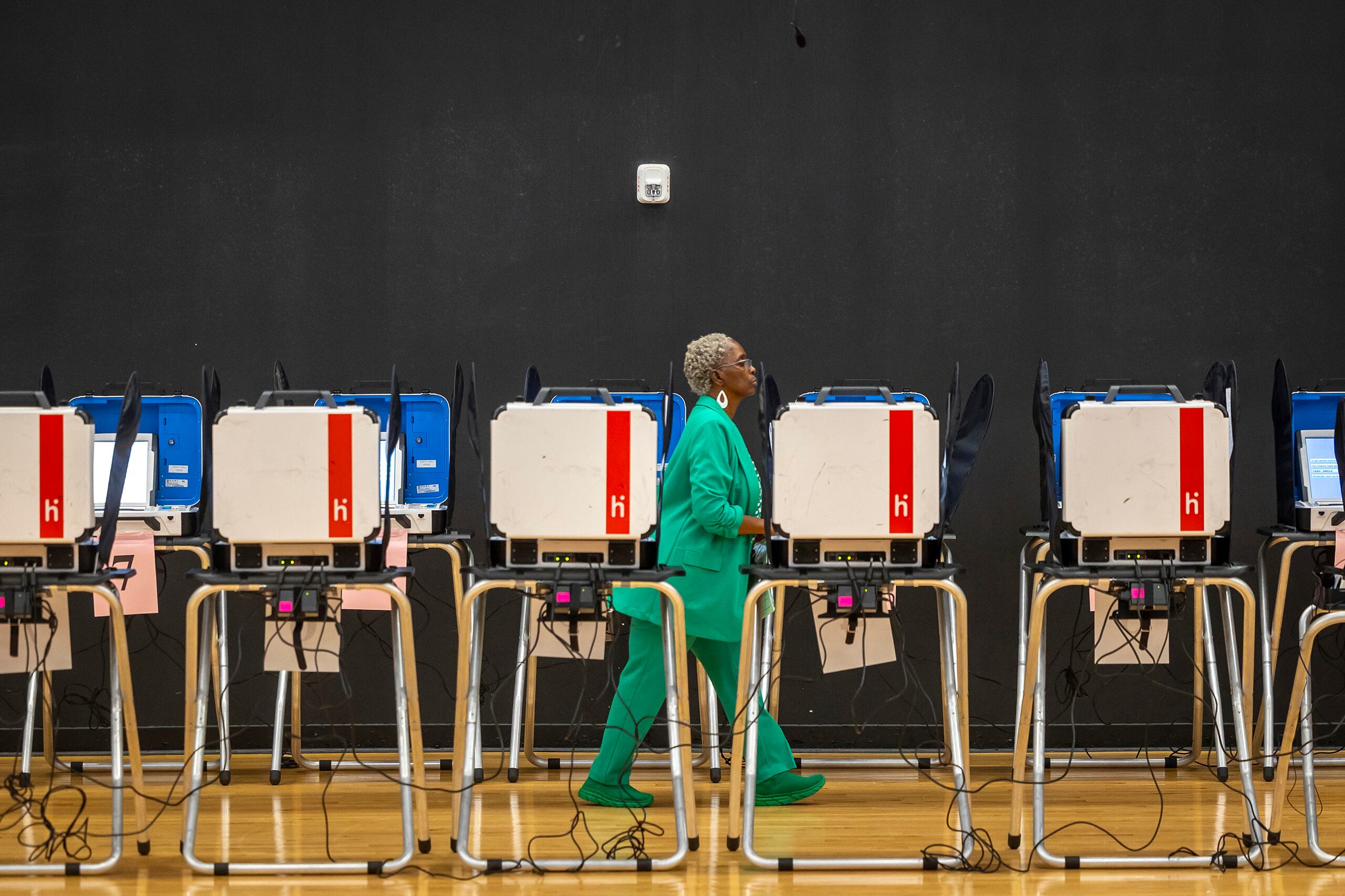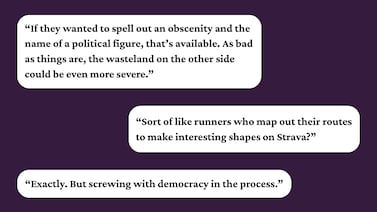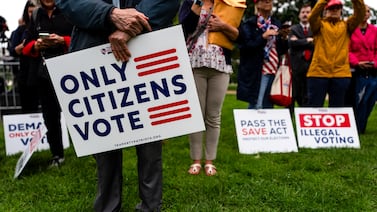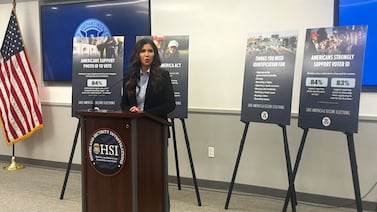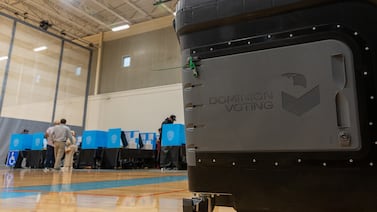Votebeat is a nonprofit news organization reporting on voting access and election administration across the U.S. Sign up for Votebeat Texas’ free newsletter here.
For months, election officials across Texas have been hustling to redraw precinct boundary lines and secure polling locations and workers for the March primary election, all based on new congressional maps Republican state lawmakers drew in a rare mid-decade redistricting this summer.
County party chairs have accepted applications from candidates for precinct chair — the parties’ neighborhood-level representatives — and, beginning this month, from candidates seeking congressional seats based on the newly drawn districts.
Now, they’re scrambling to revert to the previous congressional maps after a federal court on Tuesday blocked use of the newly drawn districts for next year’s midterms — right in the middle of the filing period for candidates seeking to run in the March primary.
Counties such as Harris and Travis, where the new boundaries changed the shape and makeup of multiple districts to help Republicans, have a lot of work to do under tight deadlines, mindful that the state’s planned appeal of the court’s order to the U.S. Supreme Court means things could change again. The stream of changes is also confusing to voters.
Officials with the Texas Secretary of State’s Office told election officials in large jurisdictions that they should currently operate the 2021 congressional maps, as the federal court ordered, Chris Davis, the Travis County voter registration division director, told Votebeat Tuesday. A spokeswoman for the office, Alicia Pierce, said that state officials also told county officials the order will be appealed, and counties must pay attention to what is happening in the courts.
“Whatever ultimately happens, it’s going to have to be done quickly,” Davis said, noting the looming March primary.
Cindy Siegel, chair of the Harris County Republican Party, said some candidates may now have to consider withdrawing their application or filing again. With the filing deadline on Dec. 8, she’s worried there won’t be enough time for her office to process the applications of candidates who withdraw and refile for new offices.
“You could title your article ‘HELP!’” she told Votebeat.
Siegel also said people are wondering whether the primary election might be pushed back because of the court battle over congressional maps. If that happens, it would throw off all the Harris County GOP’s planning, she said, including hiring workers and securing hundreds of polling sites.
“It’s just crazy,” Siegel said. “Everyone right now is just wondering what’s going to happen. No one knows.”
Texas election administrators have faced redistricting-related election scrambles and delays before.
In 2012, the Texas primary election was delayed until the summer due to months of disagreement and litigation over the state’s congressional maps. The date was changed twice, filing periods for candidates were pushed back, and campaigns were left in limbo without maps.
Because the current dispute involves a congressional election, only a federal court could delay the election or extend the filing deadlines, said Brandon Rottinghaus, a political science professor at the University of Houston.
Rottinghaus said the courts have ways to move quickly in cases like this, so a change to the primary election date is unlikely.
“They can actually have an outcome pretty quickly that may or may not be the final result, but that will get us through this election,” he said. But meantime, he noted, there’s uncertainty for candidates over what the lines will look like and when the primary will happen.
Natalia Contreras covers election administration and voting access for Votebeat in partnership with the Texas Tribune. She is based in Corpus Christi. Contact Natalia at ncontreras@votebeat.org.

